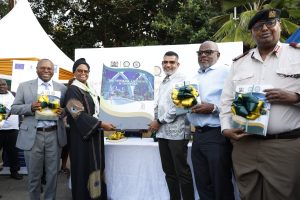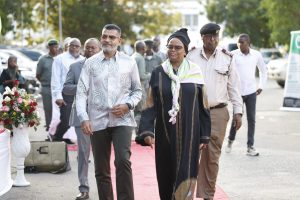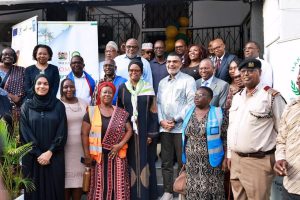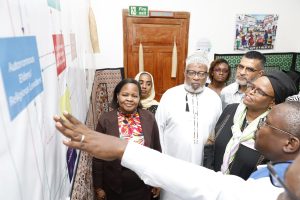CJ Koome Roots for AJS to Resolve Long Running Land Disputes
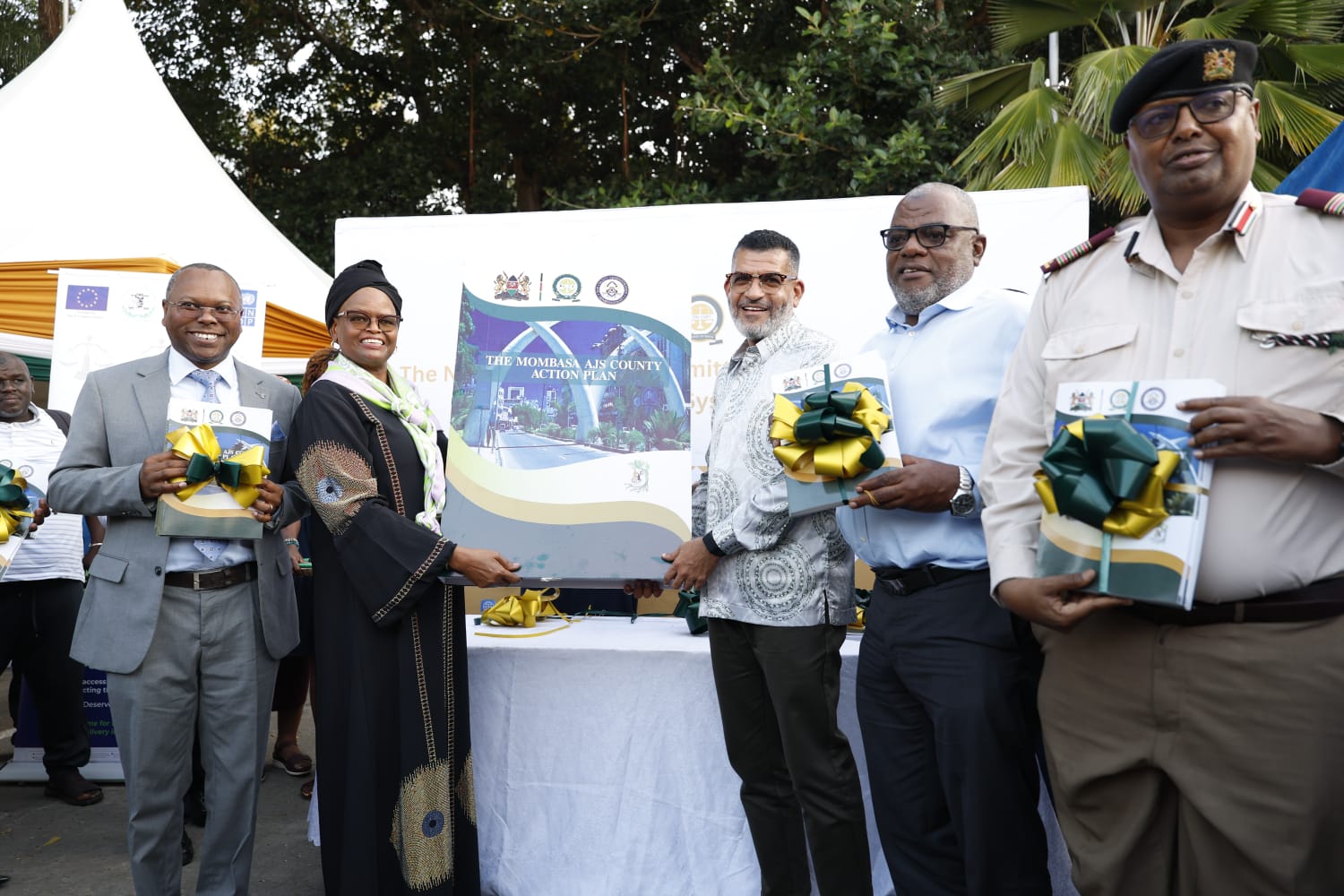
Alternative Justice System (AJS) has proved to be an effective, restorative, and humane way of resolving long running land disputes, especially those that have piled in court for years.
Speaking during the launch of the Mombasa Alternative Justice Systems Centre, County Action Plan and Model, Chief Justice Martha Koome termed AJS a ‘community healer,’ stressing that it yields wholesome justice that promotes peace and social cohesion. She urged the Mombasa community to utilize AJS to resolve some of the long running land disputes in courts.
”Land disputes account for a majority of court cases,” she said, adding that “the AJS model provides a people-centered approach that brings fairness. It prioritises reconciliation, preserves relationships, and promotes peace. Unlike the adversarial court process, AJS allows people to be heard in their own voices, in familiar spaces, and in culturally resonant ways. It is this unique ability of AJS to combine justice with healing that makes it such a vital complement to the formal justice system.”
The Chief Justice encouraged the Mombasa community to embrace the County Action Plan and AJS Model and make them their own.
“Justice is not only about courtrooms; it is about resolving disputes fairly, expeditiously, and within communities. Mombasa AJS Model empowers the residents to take ownership of justice whether through elders, religious leaders, chiefs, civil society actors, or court-annexed mechanisms,” she asserted. Further pointing out that “The Action Plan and Model ensure that every citizen has multiple doors through which they can seek redress. The future of justice lies in this multi-door approach, where citizens are not confined to a single pathway but can choose the method of resolution that best suits their needs and circumstances.”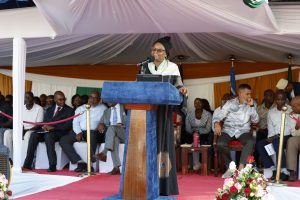
The CJ noted that for decades, Mombasa and the surrounding counties in the coastal region have borne the brunt of land-related conflicts, family disputes, organized and petty crimes, high youth unemployment linked to violent extremism, and the scars of historical injustices.
“These conflicts have not only strained relationships but also hindered development and peace. We must acknowledge that the courts alone cannot carry the heavy weight of these disputes.”
She said the future of the coastal region depends on the ability to embrace AJS as a mechanism of conflict resolution and peacebuilding. “By doing so, we will not only resolve disputes but also address root causes of conflict, heal communities, and lay foundations for lasting harmony.”
She highlighted that Mombasa has a unique cultural heritage that has always valued consensus, dialogue, and reconciliation.
“From the Kaya Elders of the Mijikenda to the Swahili traditions of communal arbitration, from religious leaders who mediate family and community disputes, this county has long had within its culture the wisdom and practices of AJS,” she elaborated. Adding that “The Mombasa AJS County Action Plan and AJS Model are therefore not just about justice but are about identity, heritage, and community empowerment.”
She explained that the Action Plan and Model seek to design localized, community-driven, and sustainable solutions that complement the formal justice system while preserving human rights, dignity, and constitutional values. The AJS Centre, will serve not only as a centre for dispute resolution but also as a living symbol of cultural heritage, peace, and unity. CJ Koome said.
Speaking during the function, Mombasa County Governor, H.E. Abdullswamad Sheriff Nassir, lauded both the process and outcomes of AJS.
“I urge the coastal community to opt for AJS to resolve the many land disputes in this region. We have more than 2000 land matters in court. When will they be heard? Yet for justice to make sense, it must be timely. Further, justice should take into account the customs and the norms of the people. That way, its outcomes are acceptable and promote peace, harmony and cohesion. AJS is the best way.’ He urged.




